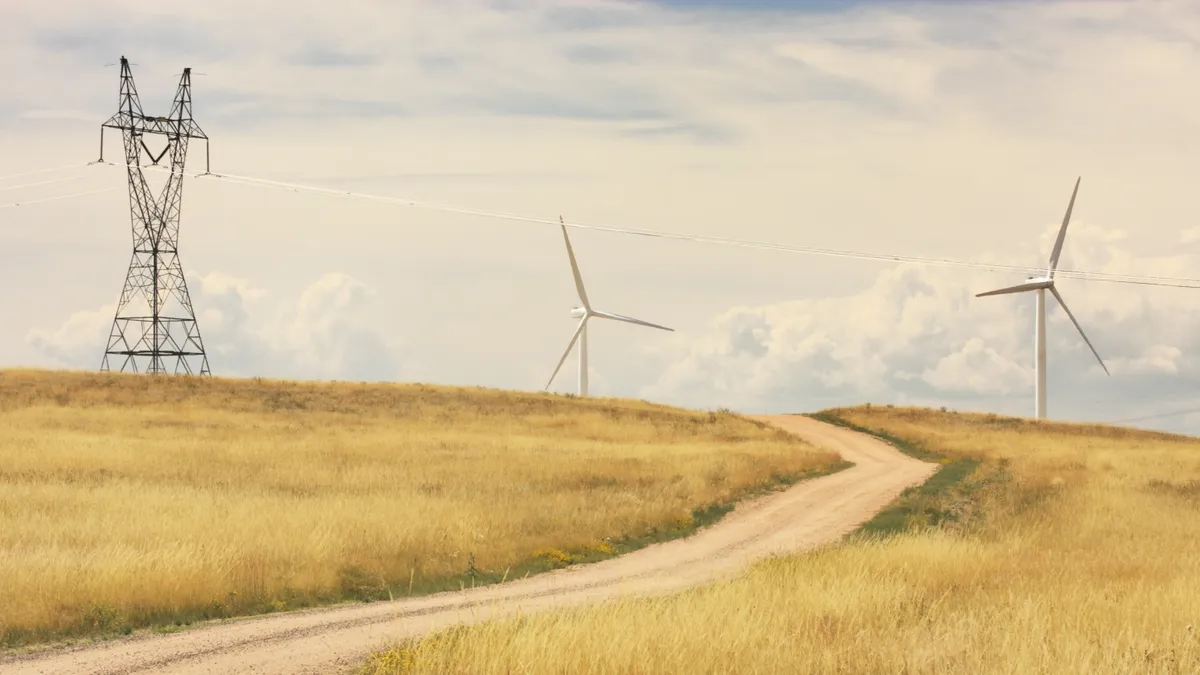Dive Brief:
-
The Federal Energy Regulatory Commission on Friday rejected a proposal that would have allowed incumbent transmission owners in the Midcontinent grid operator’s region to pay for and profit on grid upgrades needed for merchant high-voltage direct current (HVDC) power lines.
-
In part, FERC, on a 4-1 vote, said the Midcontinent Independent System Operator failed to show utilities and other transmission owners face uncompensated risks and costs when merchant transmission owners pay for the upgrades themselves.
-
Although the decision centers on merchant transmission projects, it is a victory for renewable energy developers who see the proposal as part of a broad utility effort to self-fund upgrades needed for grid interconnection, which they say can drive up costs and kill projects.
Dive Insight:
About 1,400 GW of proposed projects, mainly solar, wind and energy storage, are sitting in interconnection queues across the United States, but in many cases, the grid will need upgrades to safely bring them online.
Typically, interconnection customers pay for those upgrades themselves, but incumbent transmission owners have been seeking the right to pay for and profit from them.
FERC is reviewing a PJM Interconnection proposal and in September rejected a self-fund proposal by New York utilities. The Southwest Power Pool’s Markets and Operations Policy Committee approved a self-funding proposal last month with 83% of the vote in favor.
Having to pay for a utility’s return on equity, on top of the upgrades, can double initial interconnection costs and increase them up to 50% on a net present value basis, sometimes killing projects, the American Clean Power Association and other groups said in testimony at FERC opposing the PJM proposal.
The MISO proposal, filed in November, focused on upgrades needed for merchant HVDC transmission lines, a type of project paid for by entities using the transmission line, not utility customers.
The proposal was opposed by clean energy groups and the developer of the SOO Green HVDC project, who said it would create financial barriers to independent transmission development.
MISO’s transmission owners, including Ameren Missouri, Duke Energy Indiana and Northwestern Wisconsin Electric, argued the proposal was required to give them the same chance to self-fund grid upgrades for merchant HVDC projects as they have for upgrades for generating facilities.
In its decision, FERC said MISO failed to show why creating different funding options for different classifications of upgrades, called “necessary” and “network” upgrades, wasn't discriminatory.
Under MISO’s proposal, a merchant HVDC connection customer with “necessary upgrades” has only one funding option, in which the transmission owner builds the upgrades at the customer’s expense, FERC said.
In contrast, a merchant HVDC transmission developer has a wider suite of options for network upgrades, including an option to build the upgrades and the possibility of receiving liquidated damages when the transmission provider fails to meet milestones for completing various stages of the interconnection, FERC said.
Renewable energy advocates and the SOO Green developer praised FERC’s decision.
“ACP is glad that FERC came to the correct conclusion and opted against increasing costs for merchant HVDC transmission lines,” Gabe Tabak, association counsel, said in a statement Monday. “The recent number of self-funding cases [at FERC] emphasizes the importance of broader transmission planning and interconnection reforms that will ensure a fair and predictable approach for developers and utilities.”
“We’re pleased with FERC’s decision that supports innovative interregional merchant HVDC transmission projects like SOO Green that will deliver significant reliability, decarbonization, and ratepayer benefits,” said Steve Frenkel, vice president of Direct Connect Development Company, the developer of the SOO Green HVDC Link project.
Looking ahead, the pending self-funding proposals by incumbent transmission owners will likely be affected by an upcoming appeals court decision in a long-running dispute over a case known as Ameren Services Co. v. FERC.
The U.S. Court of Appeals for the District of Columbia Circuit heard oral arguments in December in the ACPA’s challenge to FERC’s most recent Ameren decision that allows incumbent utilities in MISO to unilaterally self-fund network upgrades for generating projects.
Now-FERC Chairman Richard Glick dissented from that September 2020 decision, saying the commission failed to adequately consider concerns about undue discrimination against interconnection customers.















